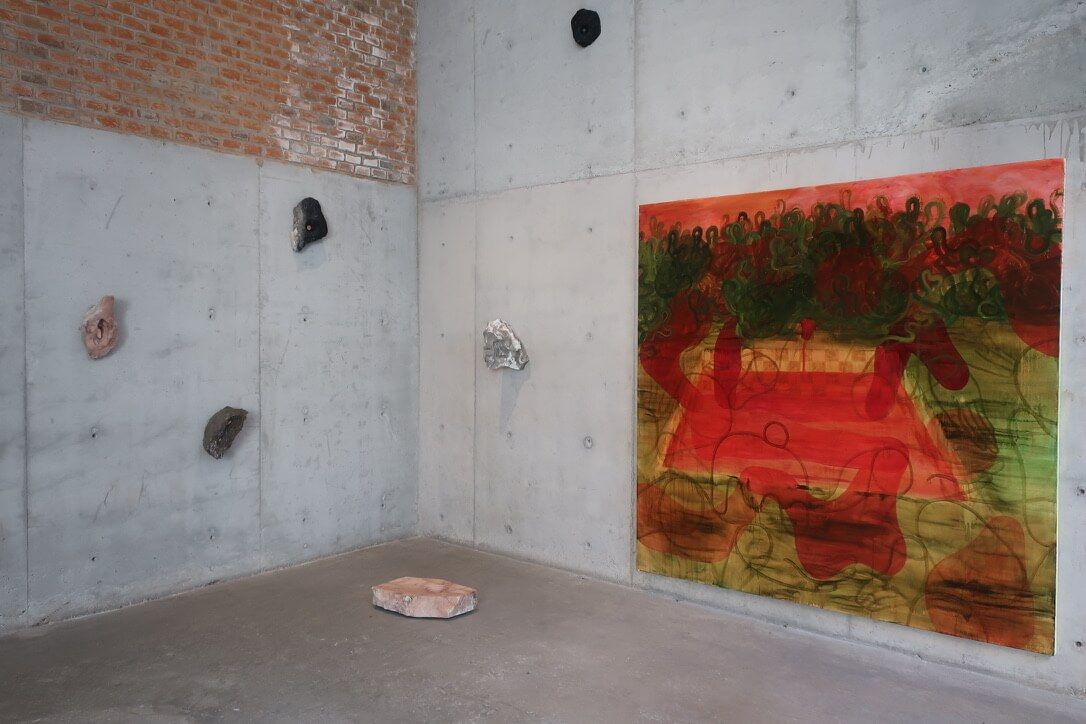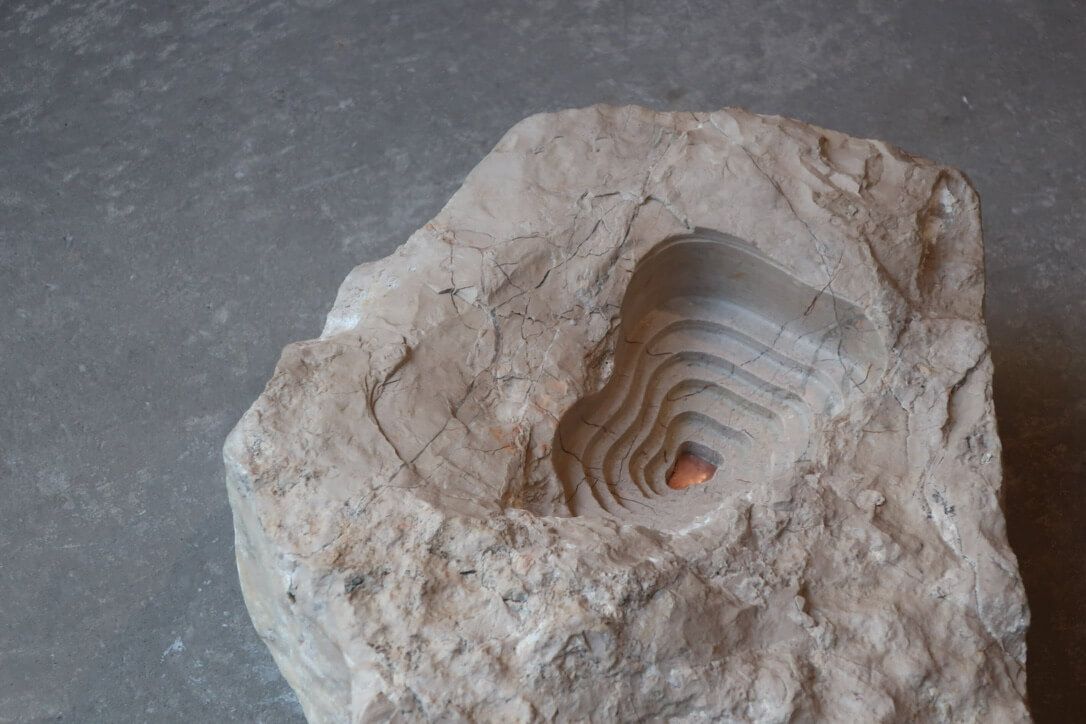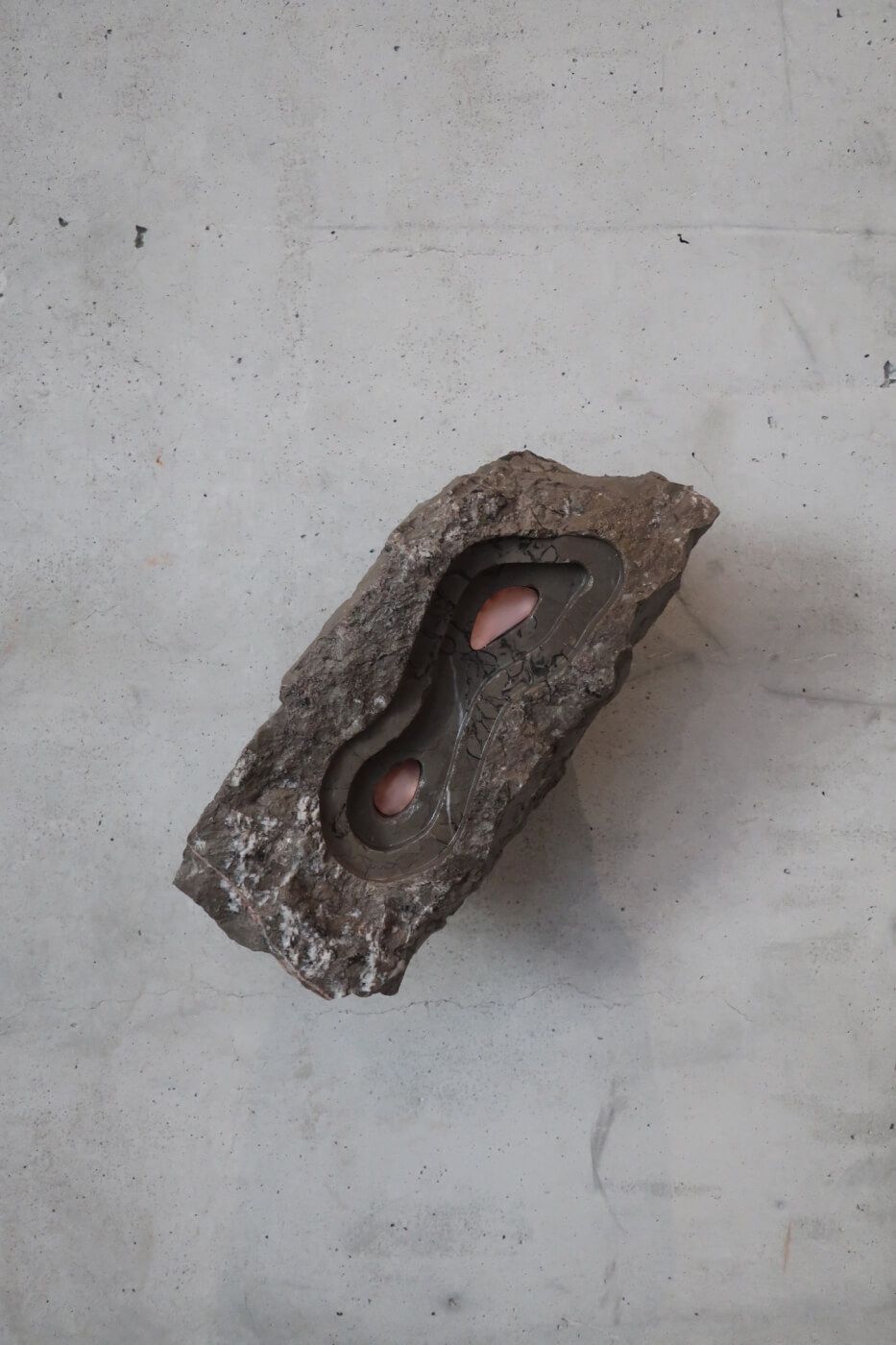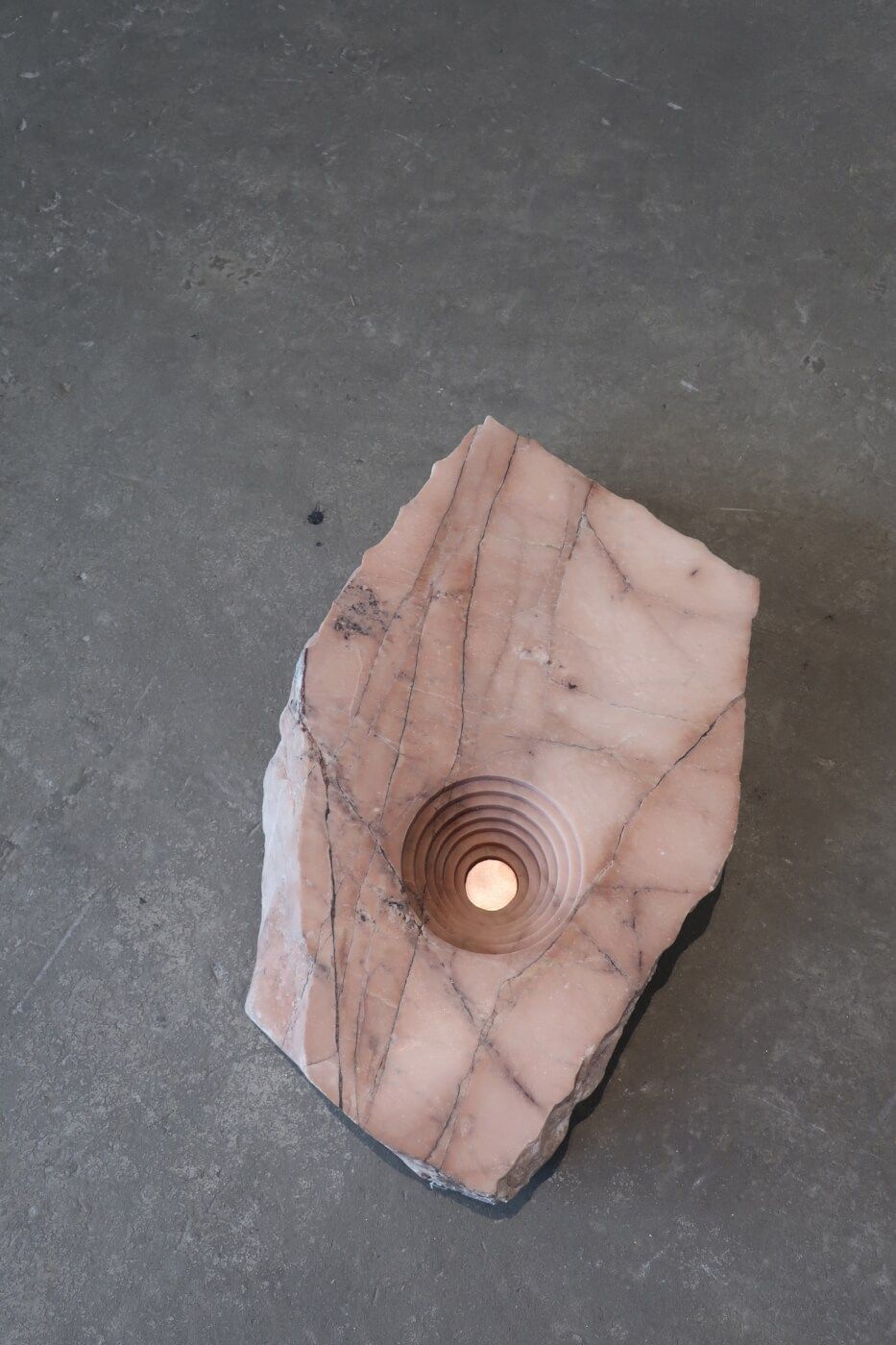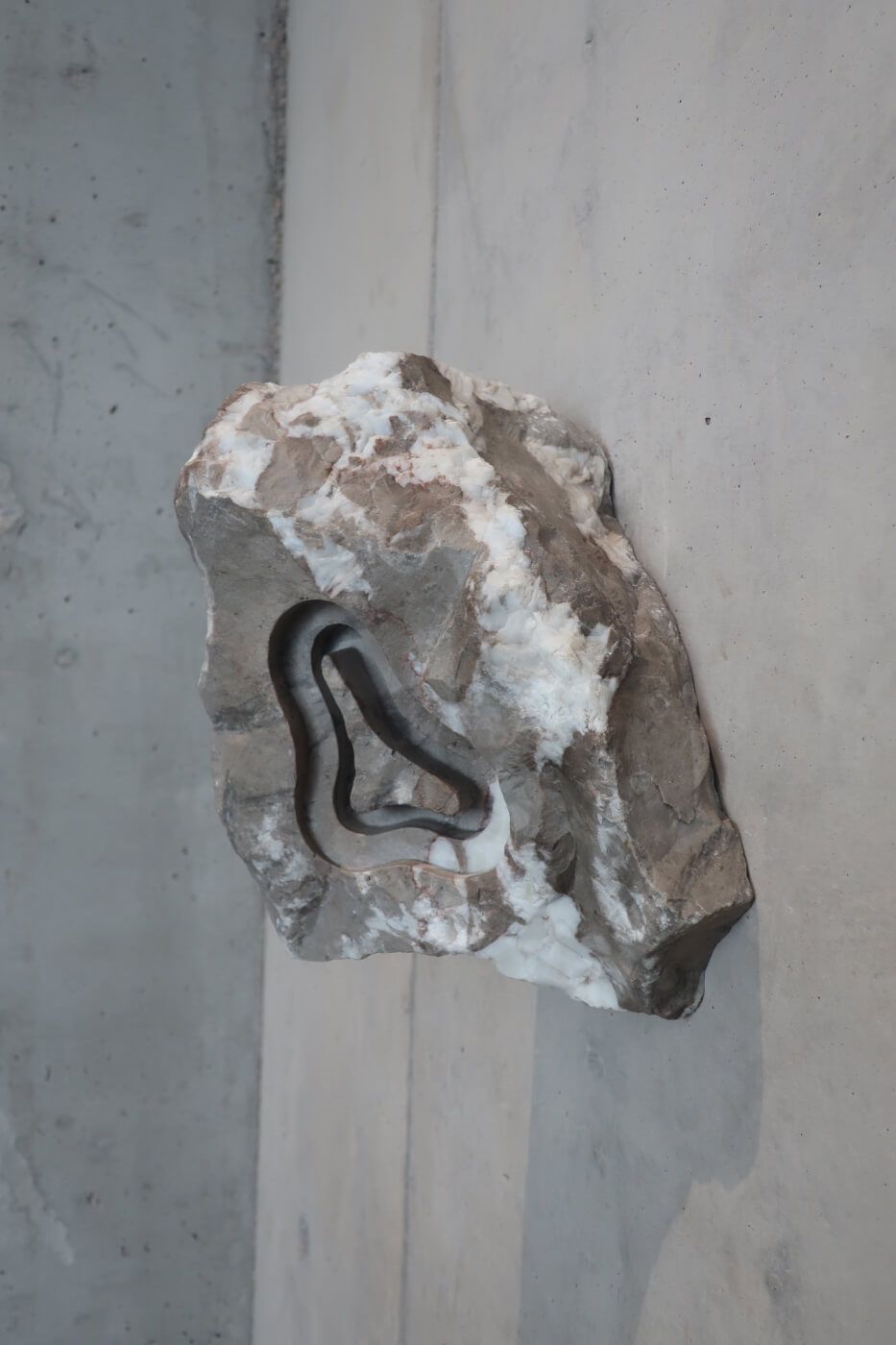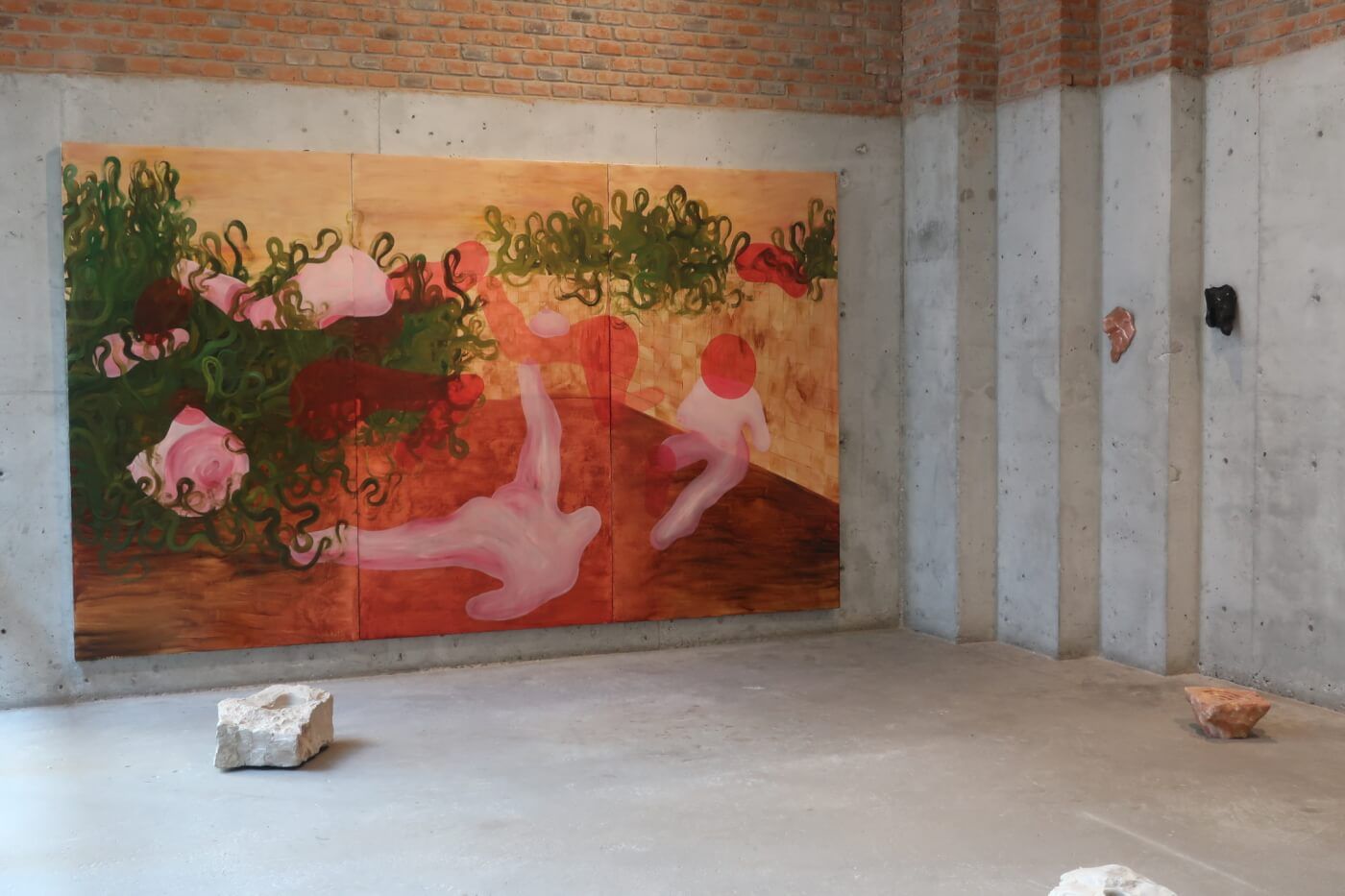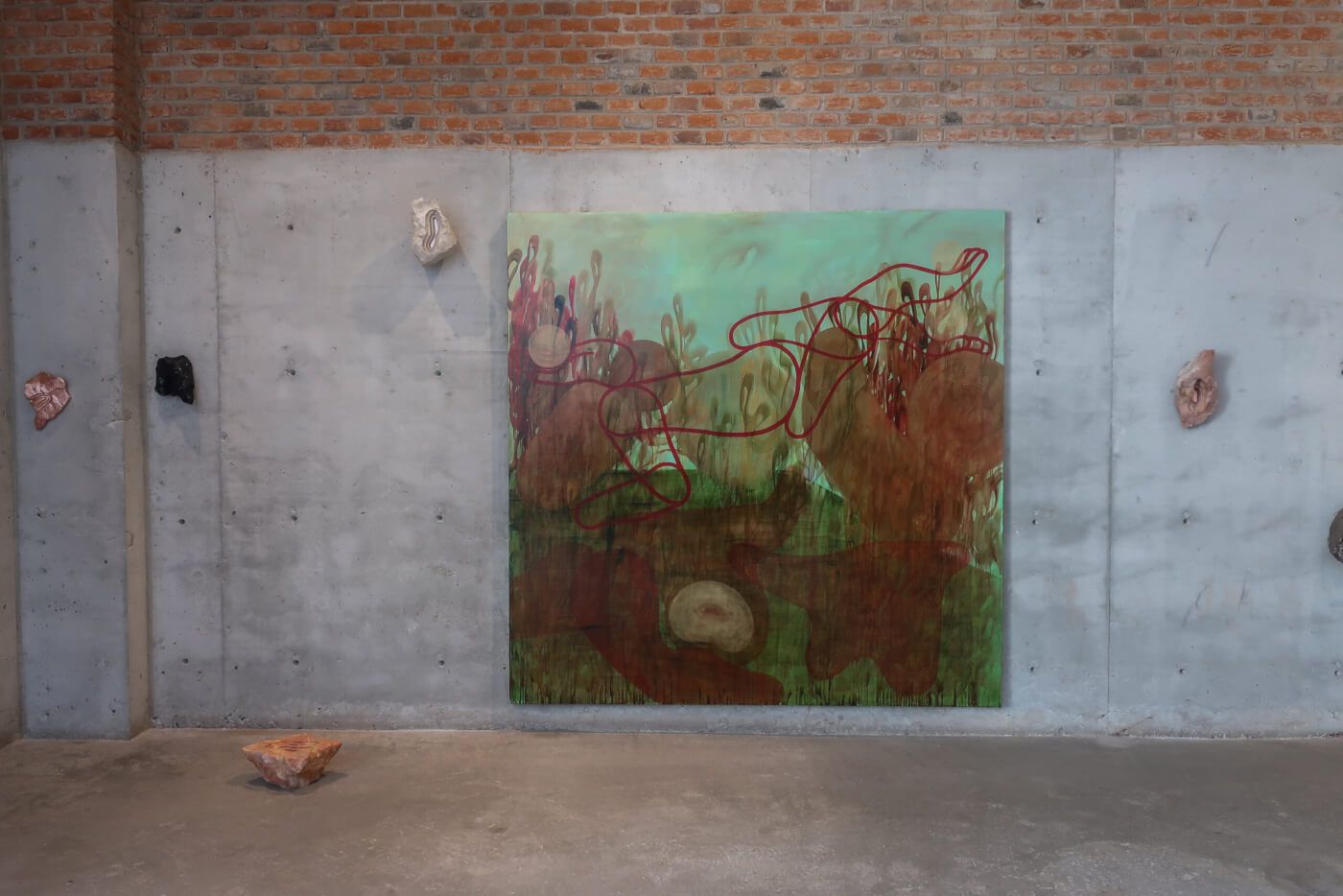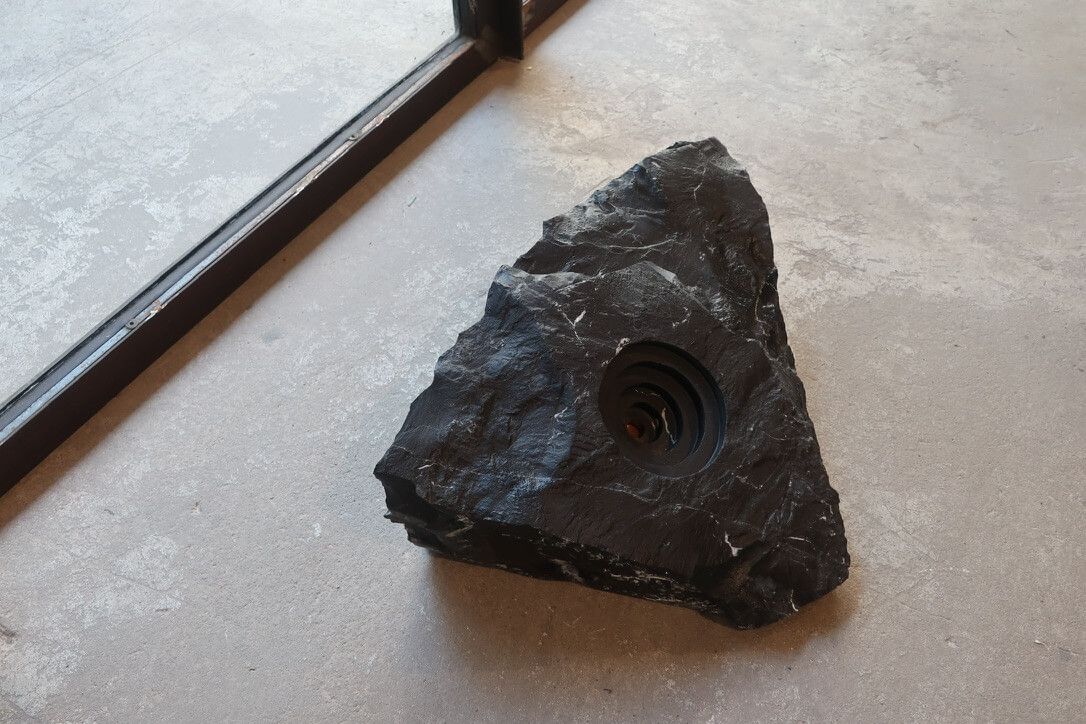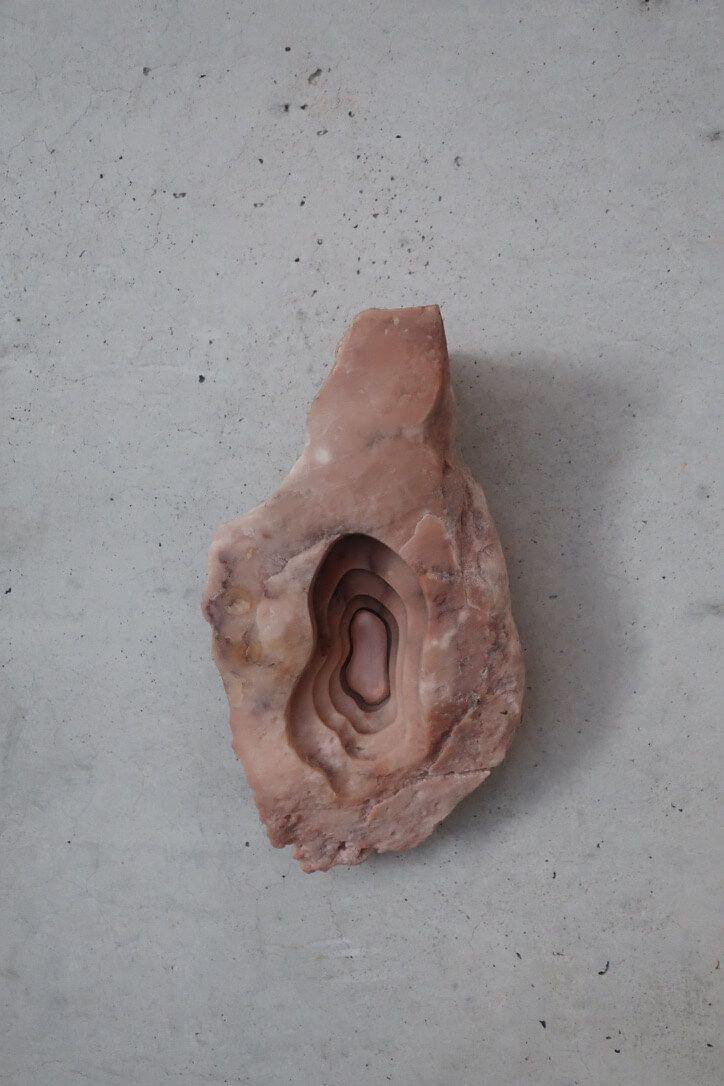Renacer de la Tierra
Karian Amaya and Liz Capote
November 4 – January 12 2024
Casa Wabi Sabino
The exhibition ‘Renacer de la Tierra’ showcases the work of artists Karian Amaya (Chihuahua, 1986) and Liz Capote (Cuba, 1996), who -coming together for the first time in a gallery- delve into ecofeminism concepts that question the prevailing paradigms that promotes environmental exploitation and gender abuse, while encou- raging a vision rooted in respect for all forms of life, intersectionality, and sustainability.
Ecofeminism is a philosophical movement that emerged in the 20th century with the goal of establishing conceptual connections between feminist ideologies and ecology. The intersections between gender oppression and environmental degradation were originally proposed in the 1970s by scholars such as Vandana Shiva (India, 1952) and Carolyn Merchant (USA, 1936), who not only developed theoretical frameworks that position the origins of both problematics in a patriarchal system of domination and exploitation but also generated comprehensive lines of activism-based actions.
Liz Capote, a graduate in graphic design from the Higher Institute of Design in Havana, Cuba, has focused her work on the development of pictorial imagery. The pieces exhibited here are part of her most recent body of work titled ‘Furia,’ in which a series of asexual anthropomorphic figures, most of them dismembered, have been witnessed and suffered previous violent acts. “My work is a reflective visual essay on everyday existence in a society where violence is a political and moral state,” argues Capote, who positions these figures in quasi- dance-like actions that blend with surrealistic landscapes and scenes, also subject to acts of abuse and destruction. Comparable perhaps to the myth of Coyolxauhqui, the figures in ‘Furia’ are not only physically dismembered but also in their consciousness. They reveal internal con- flicts and existential dilemmas that may lead them to decide between accepting their nature or confronting their reality.
Likewise, the work of sculptor Karian Amaya, (a graduate in visual arts from the University of Guadalajara) highlights the environmental damage caused by the extractivistic practices of the mining industry and its consequent transformation of the landscape. The series exhibited, ‘Por todo lo que es construido, algo es destruido’ (For everything that is built, something is destroyed), focuses on the alterations generated by open-pit mining, which are depicted in a series of sculptures made from different marble veins with copper in- lays titled ‘Cielo abierto’ (Open Sky): “My preference for mining, copper, and marble… evoke and refer in multiple ways to the visual composition of the desert landscape, present through fragments and ruins.” In this way, Amaya states that the modification of the landscape carries with it a social transformation of the communities surrounding these mines; thus causing a profound environmental, cultural, and collective impact characteristic of the current hegemony.
The combined work of Amaya and Capote underscores the importance of naming and abolishing patriarchal systems that perpetuate these realities, principles inherent in the ecofeminist framework. At the same time, they promote an active vision that invites us to work towards a more sustainable and equitable world for all.
Curator: Alberto Ríos de la Rosa
Curatorial assistants: Mariana Vinalay, Kenia Angulo and Esther Rayek.
Ecofeminism is a philosophical movement that emerged in the 20th century with the goal of establishing conceptual connections between feminist ideologies and ecology. The intersections between gender oppression and environmental degradation were originally proposed in the 1970s by scholars such as Vandana Shiva (India, 1952) and Carolyn Merchant (USA, 1936), who not only developed theoretical frameworks that position the origins of both problematics in a patriarchal system of domination and exploitation but also generated comprehensive lines of activism-based actions.
Liz Capote, a graduate in graphic design from the Higher Institute of Design in Havana, Cuba, has focused her work on the development of pictorial imagery. The pieces exhibited here are part of her most recent body of work titled ‘Furia,’ in which a series of asexual anthropomorphic figures, most of them dismembered, have been witnessed and suffered previous violent acts. “My work is a reflective visual essay on everyday existence in a society where violence is a political and moral state,” argues Capote, who positions these figures in quasi- dance-like actions that blend with surrealistic landscapes and scenes, also subject to acts of abuse and destruction. Comparable perhaps to the myth of Coyolxauhqui, the figures in ‘Furia’ are not only physically dismembered but also in their consciousness. They reveal internal con- flicts and existential dilemmas that may lead them to decide between accepting their nature or confronting their reality.
Likewise, the work of sculptor Karian Amaya, (a graduate in visual arts from the University of Guadalajara) highlights the environmental damage caused by the extractivistic practices of the mining industry and its consequent transformation of the landscape. The series exhibited, ‘Por todo lo que es construido, algo es destruido’ (For everything that is built, something is destroyed), focuses on the alterations generated by open-pit mining, which are depicted in a series of sculptures made from different marble veins with copper in- lays titled ‘Cielo abierto’ (Open Sky): “My preference for mining, copper, and marble… evoke and refer in multiple ways to the visual composition of the desert landscape, present through fragments and ruins.” In this way, Amaya states that the modification of the landscape carries with it a social transformation of the communities surrounding these mines; thus causing a profound environmental, cultural, and collective impact characteristic of the current hegemony.
The combined work of Amaya and Capote underscores the importance of naming and abolishing patriarchal systems that perpetuate these realities, principles inherent in the ecofeminist framework. At the same time, they promote an active vision that invites us to work towards a more sustainable and equitable world for all.
Curator: Alberto Ríos de la Rosa
Curatorial assistants: Mariana Vinalay, Kenia Angulo and Esther Rayek.

